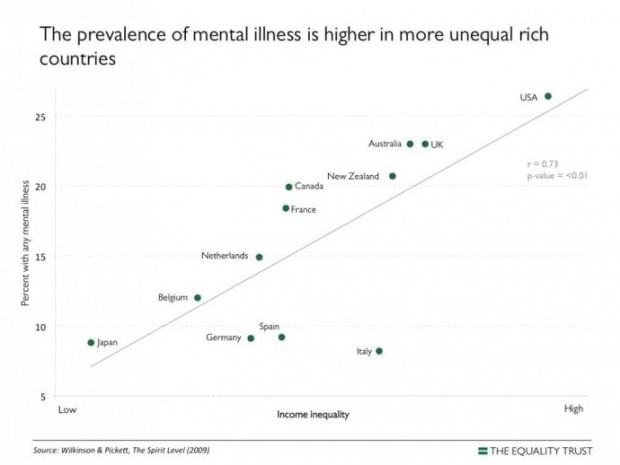Smashing out of the matrix and getting on with utopia

Utopia does feel a bit silly doesn’t it? Uncool, not very edgy and a bit naive. Perhaps because it’s been unfashionable for a while now in the mainstream. My imagination goes straight to Time Machine’s Eloi above ground: placid, very white and very foolish.
And indeed my exploration around imagination and what if-ing has been an act of daring in opposition to my usual cynical-self. I’ve even started imagining in my journal, which feels very silly and not very edgy.
But if we’re unsatisfied with our current world order, (and anyone who’s read a few of my posts can see) I’m exploring why a change of direction at an individual and societal level is needed. Maybe we need to update our notions of ‘utopia.’
Cue Rutger Bregman’s “Utopia for Realists” a juxtaposition to smash through the Eloi stereotype. I’m a realist, I think, almost to a fault, so maybe this is the kind of utopia I can get on board with.
Bregman has 6 utopian ideas to get across to readers but because it’s for realists it’s baked in with data and longitudinal studies; citing economic thinkers, psychologists and data analysts. But here’s the catch, Bregman isn’t propelling us into a difficult-for-cynics to imagine future, in fact he spends more of the time looking back. Bregman is first and foremost a historian, plucking examples from history where we have on a small scale tried these very ideas out and even how not-so-long ago they had wide appeal and so nearly came to pass.
And so he holds the hands of the realists, guides us where to look over our shoulder into the past, then down to our feet to all that is feasible today. So then we are emboldened to lift our heads and step into a future we could be proud of.
The Big Ideas
- You can solve a lot of things with free money
- Why GDP and the focus on efficiency and productivity is no longer a good metric of success for nations or individuals
- A workplace revolution, where we are working less but our jobs have value and so does our leisure
- Taxes, taxes, taxes
- Open borders would do more for tackling inequality than current approaches to international development
- The importance of ideas and why we need the return of a utopia
Throughout his big ideas Bregman debunks ideas that no longer serve us, challenging them with robust studies. So that even the most empirical among us (who love to measure) find ourselves nodding along.
There’s a lot in this book, I recommend getting yourself a copy, here for this blog I’ll focus on the first 3 ideas.
You could solve a lot of things with free money
Debunking the idea that it’s your fault you’re poor
Bregman looks back in time to find out where the notion of the deserving poor and the undeserving poor came from. He quotes Margaret Thatcher once calling poverty a “personality defect” but he plots it further back to Elizabeth’s I’s Poor Law distinguishing the two. The deserving poor were put in almshouses the other were forced to work. In 1834 the new Poor Law had those forced to work doing “senseless slave labour, from breaking stones to walking on treadmills”. English writer, Arthur Young, in the 1800s said “everyone but an idiot knows that the lower classes must be kept poor or they will never be industrious.” And in 1969 President Nixon did an about turn (story below) with the idea that “joblessness” was a choice. Proving that you are not able to work before a payout became the bureaucratic idea that still permeates to this day.
Bregman also pulls on a multitude of sociological and psychological case studies to conclude: poverty affects our cognition, impairs our long-term thinking and embeds a “scarcity mentality” leading to “unwise decisions,”concluding, “You can’t pull yourself up by your bootstraps if you have no boots.”
Our current methods of tackling poverty are pretty darn expensive
A 2009 study looking at 13 longstanding homeless people in the City of London and how much it cost. I’d never thought about how much homelessness costs. “Between the police expenses, court costs and social services…these 14..have racked up a bill estimated at £400 000 per year.”
So this experiment tried a different tactic, they gave each of them £3000. With no conditions on how to spend it, they could opt to make use of an advisor if they wanted. They were asked: What do you think you need?
Cue inner stereotype, they’ll just spend it on drugs, or on booze, they’ll spend it all at once.
So what were the results? After 12 months, they’d spent on average £800 each, purchasing items like telephone, dictionary and a hearing aid; “Simon got clean and started taking gardening classes.” After 18 months, “seven out of thirteen…had a roof over their heads,” two more about to move into their own apartments. And here’s the kicker, it cost an estimated “£50 000 per year including the social workers’ wages” with the Economist concluding it the “most efficient way to spend money on the homeless might be to give it to them.”
It’s very telling that the idea of giving (poor) people money for them to decide how to spend it feels radical. This othering and mothering idea of “I know what’s good for them” is so pervasive. It fuels missionary work, justifies colonising and maintains inequality. It’s also patronising, not very woke AND doesn’t work very well! As Bregman points out.
But just looking at it flippantly for a second, who has ever (be honest) been more excited at receiving a gift voucher for Christmas over cash? ♀️
I’m an annual donor to Giving Directly after learning about them via the Effective Altruism book Doing Good Better, and the founder is quoted here; “The truth is, I don’t think I have a very good sense of what the poor need.” As Bregman summarises, “the real experts on what poor people need are the poor people themselves.”
Inequality isn’t great for any of us
Bregman pulls on Wilkinson and Pickett’s research in income inequality (the difference between the income of the richest and poorest in the same country) against a number of social issues, including life expectancy, murder rate, depression, social trust, teenage pregnancy, obesity, social mobility and drug and alcohol abuse. Those countries with the greatest income inequality have a higher rate of social issues. And it’s not just the poor, “the rich are more prone to depression, suspicion and more.” It highlights the structural issues behind inequality and Bregman argues for the redistribution of wealth.

Introducing Universal Basic Income (UBI)
This idea makes more and more sense to me each time I read about it. It is possible that Bregman’s non-stop talk about UBI since 2016 meant it eventually entered my consciousness. It feels rational and radical. But get this, in 1967 80% of Americans supported guaranteed basic income! This historical rabbit hole was a revelation to me. As an 80s child I have known nothing else except this ‘every man for himself’ notion (which I am learning is neoliberalist thinking). So the idea that there existed a time before me when the USA had ran pilots and was almost ready to pass a bill into law is humbling and hopeful.
Here’s the history lesson in a handy video (complete with Bregman):
Why GDP and the focus on efficiency and productivity is no longer a good metric of success for nations or individuals
For something that dominates our economy, our society and even what we prioritise as individuals, I know very little about Gross Domestic Product (GDP).
A quick history of GDP and that all important context
Firstly, GDP is only 80ish years old, 1 lifetime. Again another jolt when I realise the way things are now weren’t always the case. And that it emerged “from the wreckage of depression and war” as a way for the US to gauge how much stuff they could make in the 1930s. After WW2 it was used to “anchor the consumer society.” Out of this emerged the field of economics with the objective “getting the economy to grow ” and powerful economists taking up political positions like Milton Friedman (see neoliberialism). Calculating GDP has gotten more and more complicated ever since, with more data points and subjective choices; “To measure GDP is to seek to measure an idea”, Bregman summises.
Today the definition is, “The sum of all goods and services that a country produces, corrected for seasonal fluctuations, inflation and perhaps purchasing power.”
GDP’s ideal citizen
With GDP’s focus on productivity and efficiency, the following passage really hit home for me. What’s good for GPD is “a compulsive gambler with cancer who’s going through a drawn-out divorce that he copes with by popping fistfuls of Prozac and going berserk every Black Friday.” And what about the planet? “Environmental pollution does a double duty: one company makes a mint by cutting corners while another is paid to clean up the mess. By contract a centuries-old tree doesn’t count until you chop it down and sell it as lumber.”
Social problems are good for GDP (see earlier section on the correlation between inequality and social issues) and Bregman quotes Jonathan Rowe, “the worst families in America are those that actually function as families – that cook their own meals, take walks after dinner and talk together instead of just farming the kids out to the commercial culture.”
What we don’t see in GDP
Unpaid labour has no value in GDP, so that’s jobs that include “volunteering to childcare to cooking” (Note the gender bias inherent here.) “When you’re obsessed with efficiency and productivity, it’s difficult to see the real value of education and care. Which is why so many politicians and taxpayers alike see only costs.” Labour-intensive industries take up more of a growing share of the “economic pie” while products have become more streamlined and cheaper, too cheap; “To look solely at the price of a product is to ignore a large share of the costs.”
And here’s another bit of research that knocked me sideways:
“A British think tank estimated that for every pound earned by advertising executives, they destroy an equivalent of £7 in the form of stress, overconsumption, pollution and debt; conversely, each pound paid to a trash collector creates an equivalent in £13 in terms of health and sustainability.”
Time for alternatives
We’ve moved into a different era and yet we are using the same industrial crisis post-war figures for measuring today’s world. Even the “inventor of GDP advised against including in its calculation expenditure for the military, advertising and the financial sector. Advice that fell on deaf ears.”
Bregman calls for alternative yardsticks that take into account wellbeing, environment and social benefits, he calls for a “dashboard for progress” referring to Bhutan’s Gross National Happiness dating back to 1972.
A workplace revolution, where we are working less but our jobs have value and so does our leisure
Working less has been a utopian idea for centuries, George Bernard Shaw predicted in “2000 we’d be clocking just two hours a day” back in 1900. But in 2020, more of us are working,(females entered the workforce in droves from the 70s onwards) many of us take our work home and we put jobs that add little societal value (and a higher pay packet) on a pedestal, but snub those that don’t.
Again we look back to a period in the 1960s, companies were reducing their work hours (Ford and Kelloggs) as they identified that longer hours did not correlate with increased productivity, in fact they found the opposite. There was a trend towards an increase in leisure time and a debate about how that would affect society. By 1980 Bregman asserts it was “a forgotten dream”, with women entering the workforce it could have been possible for men to work less but we swapped more free time for more consumption.
“Time is money, Economic growth can yield either more leisure or more consumption. From 1850 until 1980 we got both but since then, it is mostly consumption that has increased.”
And so now, we can’t afford to work less. Supposedly.
We have forgotten the findings of Ford and Kellogg and the UK Prime Minister in the 70s Edward Heath. In response to miners going on strike, the UK faced energy shortages. For 3 months of 1974 he imposed a three-day workweek, “the government minister feared a catastrophe” but production loss only totalled 6%. (It’s interesting to read this in an enforced lockdown situation)
A shorter work week: the solution to (Almost) Everything
Productivity and long work hours do not go hand in hand. I’ve said this twice now. That’s deliberate because I need to absorb this myself.
Here’s a quick list of what shorter working hours would help solve:
- Stress
- Climate Change – “a worldwide shift to a shorter workweek would cut the CO2 emitted this century by half” and consuming less starts with working less.
- Workplace accidents
- Unemployment
- Emancipation of women – countries with short work-weeks consistently top gender-equality ratings and the positive effects of paternity leave can last the rest of their father’s life!
- Ageing population
- Inequality
And culturally we’ve absorbed business as a status symbol (could that be the GDP thinking trickling through?) We are obsessed with being productive.
Bregman calls for a national strategy to ramp down our work hours and the research shows that this is what we want. It would require unpicking some of our existing work structures. But it is possible.
Less bullshit jobs
Not all jobs are created equal – and yet we seem to have got it the wrong way around. Bregman says, one way to find out how valuable a job is in society is to go on strike. How long does it take to bring things to a standstill? New York garbage teams went on strike in 1968, six days later a state of emergency was called across the city. In 1970 Irish bankers went on strike for six months and nothing much happened, the Irish economy continued to function and in fact people made their own money!
Another way to look at it during a pandemic. Which jobs make the key worker list. Are you clapping for carers or social media managers on a Thursday at 8pm? (Says a social media manager)
“Instead of creating wealth, these [modern] jobs mostly just shift it around…and these net the best salaries.” Bregman calls it the paradox of progress, “the richer and smarter we get, the more expendable we become.” And in quick succession, he drops another truth bomb; “the fact that something is difficult does not automatically make it valuable.” We’ve put these jobs behind the paywall of more education, accreditation and long syllables of jargon or tongue-twisting acronyms. We deluded ourselves (and have been actively encouraged to do so), with “the conviction that you’re producing something of great value because you earn so much.”
A former Facebook employee is quoted, “The best minds of my generation are thinking about how to make people click ads.”
Ok, let’s be honest, who here has had a bullshit job? ♀️You’re not alone. “a recent poll revealed 37% of British workers think they have a bullshit job.”
And the irony?
The governments have made cutbacks on jobs that add real value while the number of bullshit jobs have proliferated.
With the next wave of automation nipping at our heels, today’s world of work is about to change dramatically. The labour market is polarising, as the gap between “lousy jobs” and “lovely jobs” widen, “work for the average-skilled worker is slowly on the decline.”
Think utopian thoughts
Above all Bregman is calling for “a return to utopian thinking” quoting Bertrand Russell, “it’s not a finished Utopia that we ought to desire, but a world where imagination and hope are alive and active.” And so once again I am reminded that I am stuck in GDP thinking; obsessed with the outcome and the productivity – when really it is the process that offers the most value. It is the yearning for and the journey towards a utopia that can bring out the best in us.
“For us today, it is still difficult to imagine a future society in which paid labour is not the be-all and end-all of our existence.. The richer we as a society become, the less effectively the labour market will be at distributing prosperity. If we want to hold onto the blessings of technology ultimately there’s only one choice left, and that’s massive redistribution.”
I’d already been stretching my imagination into a possible future and this book grounded it in real world examples of past and present at what the future could reasonably look like. And maybe because I am reading this during a lockdown, it forced me to see how most of my thoughts, inner and outer are filtered through a GDP lens that I absorbed unknowingly. My jargon-filled Skype call is more valuable than the washing up. He is more important than me because he earns more. My self-worth is tied to my productivity on any given day; I am only as good as I do.
Upon finishing the book I felt like Neo in the climax of the Matrix as the bullets fly towards him – he puts his hand out and says ‘no’. He is no longer playing along with the rules of the matrix. And the bullets stop and fall to the floor. The illusion is shattered.
I don’t want to play the GDP game any more, the one that fuels inequality, climate change and stresses me out constantly making me think I am not good enough for not doing enough.
No.
Yes I still live in the system, the toxic fossil-fuelled one, seduced on the last dregs of a growth-for-the sake of growth system, but I own my own business and I can choose to run it differently. I am lucky enough to risk trading in bullshit work for work that creates value. A lockdown has shown me that many elements of life are enjoyable and enriching without the pre-requisite of consuming. I can start to carve out my utopian journey right here. And I can start to bring it alive for others by talking about it.
It’s time to get real about utopia. And that doesn’t sound silly at all, in fact, it sounds kinda badass.
Clips for resources on Bregman’s other big ideas
Taxes, taxes, taxes
Open borders





